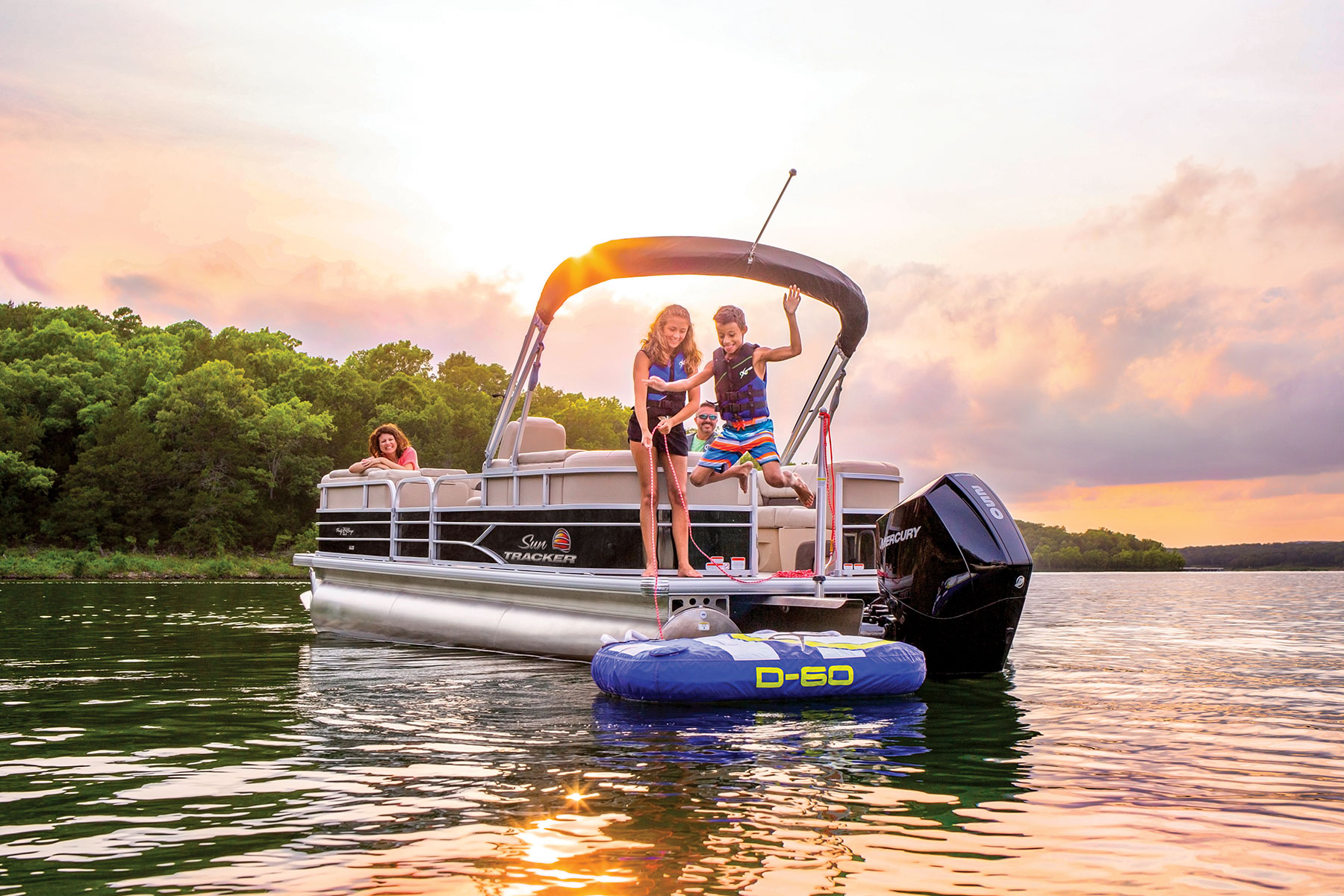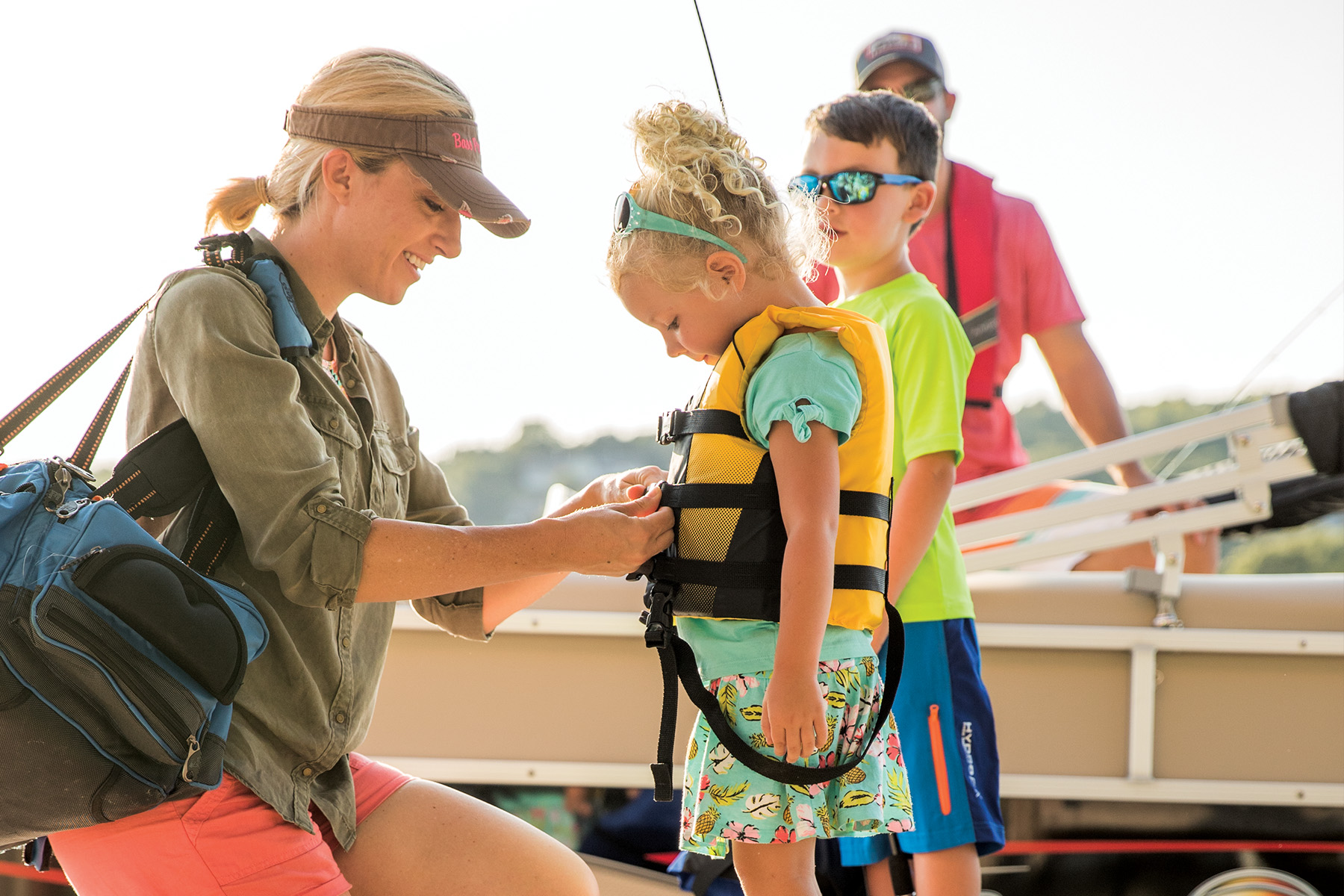Boating is your gateway to the fun of being on the water. Why not respect this precious resource with environmentally friendly boating practices?
Some are simple, but provide you with greater peace of mind—and the good feeling of knowing you did your part to keep waterways clean. Other boaters might even take note, and you can share your good deeds through social media. On and off the water, you can get the word out about the importance of environmental stewardship—even when you are having fun.
Here is a list of examples to get you started, including a fun event that happens each July.
Prevent fuel spills at the marina gas dock by not topping of the tank. Doing so could result in backflush of the fuel, which could also pose danger to you and others. Fill the tank to 90 percent capacity to allow space for fuel expansion and boat movement. Avoid using handle clips and hold the nozzle with the tip up. Use absorbent pads to clean up drips.
If your boat is docked on the water during the boating season, move it to shore for maintenance needs that could pollute the water. That includes jobs involving the use of cleaning solvents, engine oils and other harmful chemicals. Small spills can add up and cause immediate impacts on the water.
Boat cleaners, polishes and waxes are becoming more environmentally friendly. That’s good news if you keep your boat in the water. Those products are made with agents that biodegrade easily when put into the environment. Big cleaning jobs should be done on the shore for better results and to prevent any type of chemicals from entering the water. Choose wisely because what might appear on the product label as eco-friendly might not be. Avoid products with phosphates, which can kill marine life and cause algae blooms.
Grit and grime on your boat pale in comparison to an invasion of plants, fish and animals—collectively called aquatic invasive species—on your local waterways. Sea-going vessels, barges, recreational watercraft and even boat trailers are responsible for spreading them. Aquatic invasive species are prolific breeders and quickly become established where they don’t belong. You can prevent their spread with awareness of how to identify the problem and prevent it from spreading using the Clean, Drain and Dry method. See how to do it and learn more about invasive species in this related article. https://www.bassproboatingcenters.com/blog/aquatic-invasive-species.html
These do’s and don’ts can make your fishing trips more environmentally friendly. Don’t discard old fishing line into the water. The line can become entangled in fish and birds. Do look for recycling bins and tubes that are found at many public fishing piers and marinas. Don’t release unused live bait into public waters. Doing so in some states is illegal. Minnows themselves aren’t considered invasive species, but some of those undesirable fish could be in the batch. Don’t hold a large fish vertically by the lip. Do hold the fish horizontally, using one hand to hold the jaw and the other to support the tail.
Don’t be a litterbug. For foods, reduce trash by storing those items in resealable plastic storage containers. You can consolidate foods by portions, and use personal reusable water bottles that are filled from a large container.
Nothing beats a shoreline campfire and marshmallow roast, but you should act responsibly when finding fuel for the fire. Use fallen wood or dried driftwood instead of cutting down trees—even if they are dead. On some public waters, cutting timber or disturbing vegetation is illegal.
Even better, educate yourself about any laws in effect where you plan to go boating. That includes fishing regulations and rules for camping and burning fires. Those laws are in effect to protect the environment, and you should do your part by knowing them.
Bring along extra trash bags for doing a good deed. If you encounter litter on the shoreline, pick it up and dispose of it ashore in an approved refuse container.
You can report spills and environmental dangers to the U.S. Coast Guard, which has established reporting criteria and enforces violations. Anyone witnessing an oil spill, chemical release or maritime security incident should call the National Response Center at 800.424.8802.
July is Lakes Appreciation Month, created to raise awareness of lake issues and showcase the good deeds of local support groups to a broader audience.
You can join the cause by participating in the Dip-In, which demonstrates the potential of citizen scientists to gather important information on lakes and reservoirs. Individuals in volunteer monitoring programs across North America take a transparency measurement of their lake or reservoir in July to produce a continent-wide snapshot of water clarity. To date, more than 50,000 Secchi readings have been collected as a part of the program, engaging hundreds of citizen scientists. The Dip-In is a leader in connecting lake lovers to water quality monitoring data.
Lakes Appreciation Month is organized by the North American Lake Management Society. You can join the Dip-In and find out more at nalms.org.


